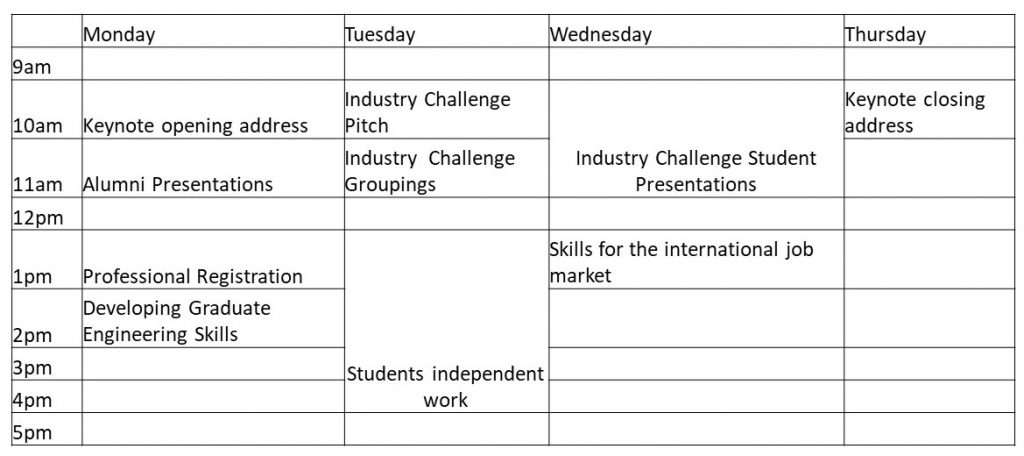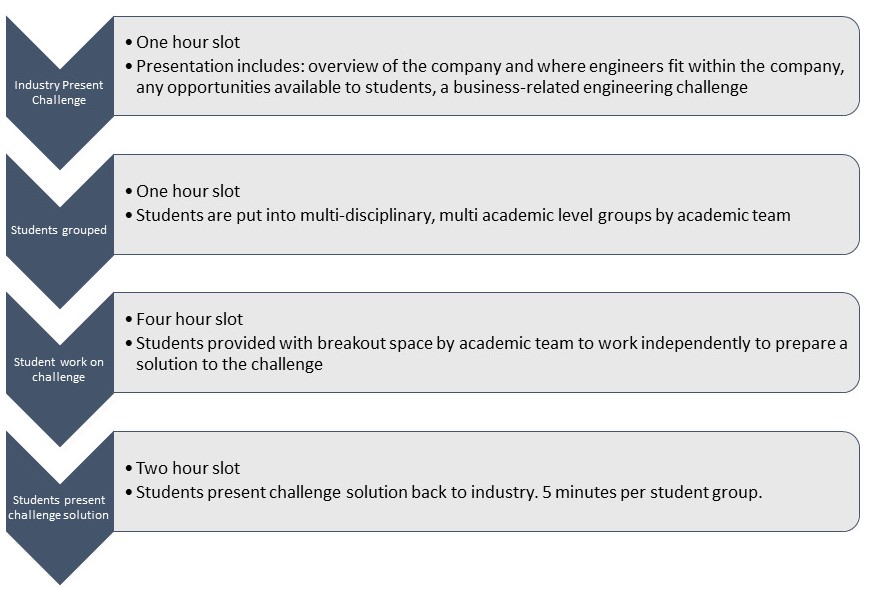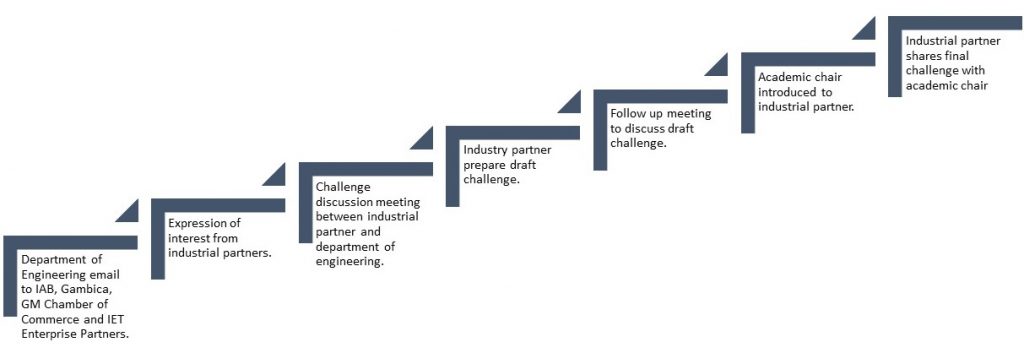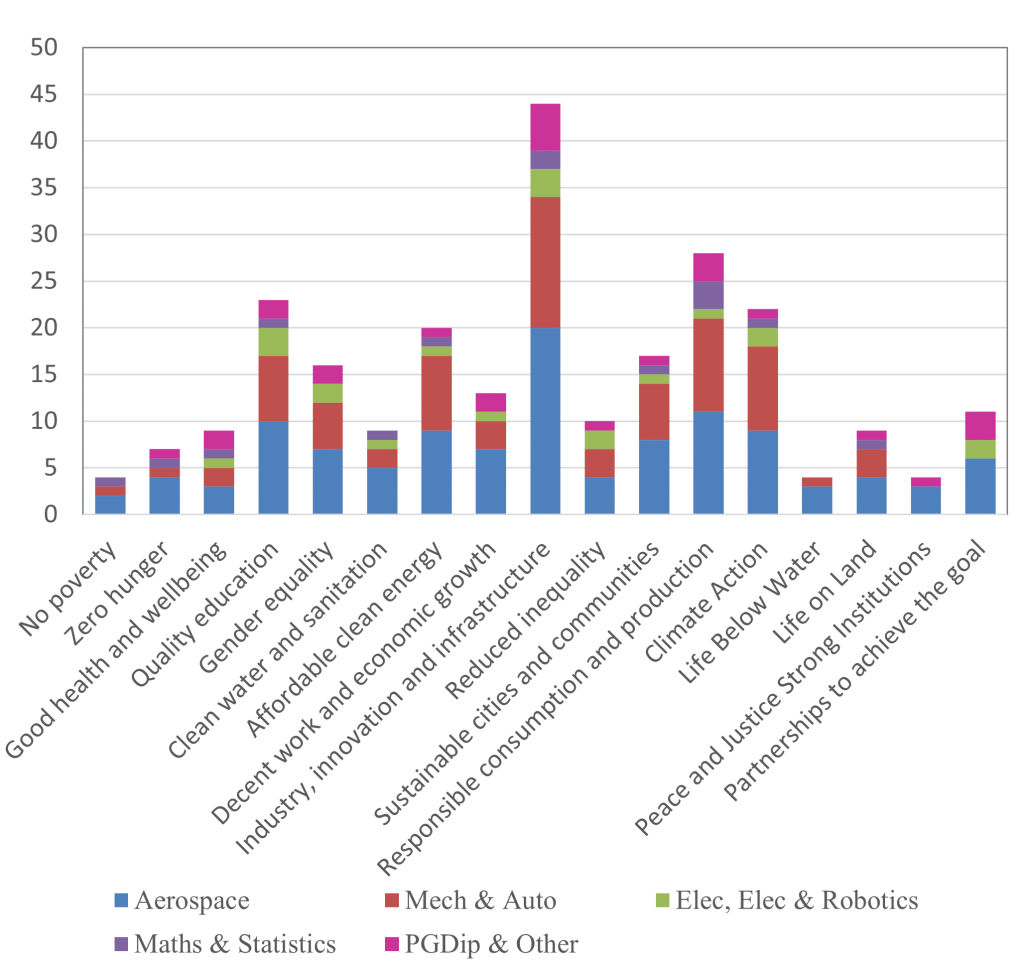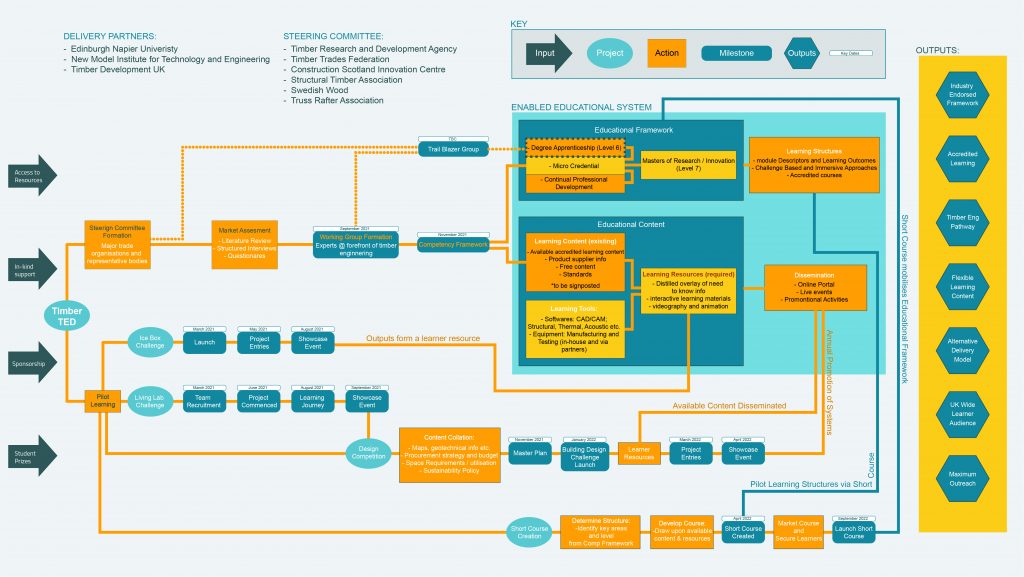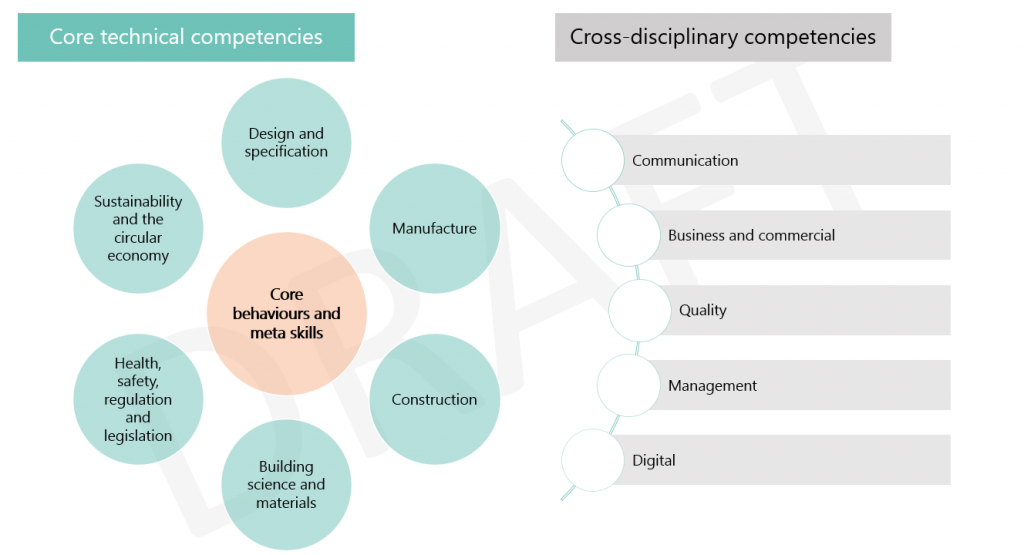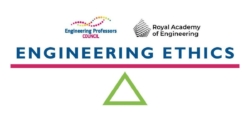 Theme: Collaborating with industry for teaching and learning
Theme: Collaborating with industry for teaching and learning
Author: Dr Mike Murray (Department of Civil & Environmental Engineering, University of Strathclyde, Glasgow)
Keywords: Mentors, Mentees, Civil Engineering
Abstract: On enrolment at university, undergraduate civil engineering students begin their journey towards a professional career. Graduate mentoring of student mentees supports students in their transition towards ‘becoming’ a professional engineer. This case study examines the results from a graduate mentoring initiative (2010-2022) involving third-year (N= 974) civil and environmental engineering student mentees, 235 graduate mentors and 73 employers.
A virtuous collaboration between academia and industry
This case study examines the establishment of an industry-student mentoring scheme whereby Alumni civil engineering graduates volunteer to mentor student mentees. The mentoring is formalised in a third-year module (Construction Project Management).
Authentic learning
The mentoring initiative aims to expose the mentees to authentic civil engineering practice, to shape their professional identity and belongingness to their chosen discipline, and, to enhance their employability skills. Mentors are tasked ‘to help motivate students towards learning what is useful and what might make them a better engineer rather than just focusing on grades’ [1].Two theoretical concepts provided a lens to guide the implementation. ‘Possible selves are representations of the self in the future, including those that are ideal and hoped for as well as those that one does not wish for’ [2 p.233]. Anticipatory socialisation involves individuals anticipating their future occupation prior to entry and constitutes all learning that takes place prior to an individual’s first day at work [3].
People, place & culture
The collaboration between the department and employers began in 2010 when the author approached the department’s existing industry contacts, to become the inaugural mentors. Today, LinkedIn and other social media provide a platform for broadcasting mentoring news. Over time the mentoring has built its own brand momentum and Alumni and employers now make unsolicited offers to assist (i.e. see [4] for university and industry-driven engagement strategies). The brand is enhanced through its association with key sector employers but given the propensity for small and micro SMEs in the engineering sector, these employers should not be overlooked.
Whilst the mentoring is embedded within the mechanics of a formal structure (i.e. Module, Learning Outcomes, and Assessment etc.) the development, sustaining and leadership of the initiate is fuelled through informal professional relationships. Social relations are important to maintain ongoing engagement between universities and industry stakeholders [4 p.14]. The collaborative culture is characterised by value alignment and trust between the stakeholders [5].


Mentoring with a contractor.
Stakeholders
The mentoring initiative can be considered an ‘employer group’ model whereby ‘engagement included collaboration between a single HEI (University of Strathclyde) and two or more employers on the same initiative’ [5 p.23]. The initial buy-in from the mentors normally requires sanctioning by a line manager, often, a supervising civil engineer.
The value alignment between all stakeholders is personified through knowledge transfer (mentor-mentee); professional development (mentor-employer); creating social value (employer-university) and, the university department through fulfilling the programme accreditation requirements:
JBM strongly recommends that higher education institutions (HEIs) maintain strong, viable and visible links with the civil engineering profession [6 p.21].
By association, the professional institutions benefit through the mentors’ contribution to their own CPD, en-route to IEng / CEng, and, through the mentees gaining an awareness of profession attributes through their own IPD during their university studies:
All members shall develop their professional knowledge, skills and competence on a continuing basis and shall give all reasonable assistance to further the education, training and continuing professional development (CPD) of others [7].
A fuller description of the mentoring process can be found [8]. Suffice to say the mentees (in groups of four) visit their mentors in the field, at a consultant’s office, and/or to a live construction site on four occasions over two academic semesters. Typically, the mentors will also provide mentees with access to their peers who would shed light on their own graduate trajectories. The department’s industrial advisory board [9] published guidance to assist the mentors. During the Covid pandemic, the majority of meetings were undertaken on ZOOM /TEAMS platforms. To date, the initiative has involved:
- 974 third-year civil & environmental engineering student mentees.
- 235 Industry mentors.
- 73 Employers (38 consultants; 25 contractor; 9 clients).
- Total time in mentoring meetings constituting student IPD circa 7792 hrs.
Assessment evolution
Over the piece, the mentoring assessment has constituted a circa 40% weighting for the 10 credit module. Initially, the students were tasked with only describing what had been learned and to link this to professional institution attributes [10]. This morphed into an Assessment for Learning [11] and sought to develop the student’s reflective practitioner [12] and metacognition skills [13]. Students develop four SMART learning objectives, linked to their programme curriculum, and, to explore these topics with guidance from their mentors. Today, the assessment criteria partially reflects the tenets of self-determined learning:
The essence of heutagogy is that in some learning situations, the focus should be on what and how the learner wants to learn, not on what is being taught [14 p.7].
During the 2020-22 academic sessions the Covid pandemic presented an opportunity to employ eLearning technology, to enhance the student’s reflection skills. The author is currently piloting Vlogging [15] whereby the students are tasked with completing short video blogs concerning their mentoring experience, and, to use the audio transcript to facilitate second-order reflection in a summative report:
..any technique that requires a learner to look through previous reflective work and to write a deeper reflective overview [16 p.148].


Mentoring with a Consultant
Key outcomes
The key outcomes concern enhanced opportunities for placement and graduate employment, and, an improvement in the students’ employability skills [8]. Recent anecdotal feedback (i.e. unsolicited student emails; NSS Free text; Module Evaluation; Employer Feedback) demonstrates that students, and employers, consider the initiative to constitute an emerging talent pipeline. The mentoring provides a surrogate mechanism to short circuit employer’s traditional recruitment process.
The CE4R [17] workshops are the best thing ever. That along with the mentoring class in third year is the main reason I have my graduate job, whilst my grades and ability helped, these aspects of my course opened the door for me. (NSS Free Text, 2021)
The graduate mentoring programme is excellent and is highly beneficial to both the students, our graduates in the business and AECOM as a whole. (Lynn Masterson AECOM, Regional Director North, Scotland & Ireland. Ground, Energy & Transactions Solutions, UK&I)
The [mentoring] scheme works for us on a number of levels in providing benefits to us as a company, the professional development of our current graduate engineers, and the development of current Strathclyde undergraduates who may go on to work for us or others in industry. (Simon McCormick, Balfour Beatty, Contracts Director, Scotland)
Lessons learned
- Your current students are your future graduate mentors. Establishing a peer mentoring scheme will help to develop a culture of collegiality and collaboration across your programme(s).
- Inculcate a culture of collaboration, rather than competition, amongst the mentees. Mentoring in groups requires professional communications between the mentees, and with their mentor.
- Not all mentees will be sufficiently motivated or are willing to understand the concepts of self-determined learning and reflective practice. This can be considered a Threshold Concept and will require attending to students’ epistemic believes.
- Unless you have sufficient time, and or assistance from colleagues to manage the mentoring scheme, do not micromanage. Manage by exception.
- At department / faculty level, academic-industry collaborations should be organised and managed as a holistic system. However, do not conflate requests to employers for help with students’ (time in kind) with requests to support university income streams (research / KE).
Guidance & resources
Generic guidance:
Bolden R., Connor, H., Duquemin, A., Hirsh, W., & Petrov, G. (2009). Employer Engagement with Higher Education: Defining, Sustaining and Supporting Higher Skills Provision, A Higher Skills Research Report for HERDA South West and HEFCE.
Broadbent, O & McCann, E. (2026) Effective industrial engagement in engineering education– A good practice guide, Royal Academy of Engineering.
Davies, J.W & Rutherford, U. (2012) Learning from fellow engineering students who have current professional experience, European Journal of Engineering Education, 37:4, 354-365, DOI: 10.1080/03043797.2012.693907
Valentine, A., Marinelli, M., & Male, S (2021): Successfully facilitating initiation of industry engagement in activities which involve students in engineering education, through social capital, European Journal of Engineering Education, DOI: 10.1080/03043797.2021.2010033
Waterhouse, P (2020) Mentoring for Civil Engineers, London: ICE Publishing
University guidance:
University of Colorado Boulder (2022) Chemical & Biological Engineering: Alumni-Student Mentor Program, https://www.colorado.edu/chbe/ASMP
University of Exeter (2022) Career Mentor Scheme: Mentee Guide, http://www.exeter.ac.uk/media/universityofexeter/careersandemployability/employmentservices/Mentee_Guide_December_2021.pdf
University of Southampton (2022) Career Mentoring Programme: Mentor Handbook, https://www.southampton.ac.uk/~assets/doc/careers/Mentor_Handbook.pdf
The Pennsylvania State University (2022) Civil & Environmental Engineering (CEE) Mentoring Program, https://www.cee.psu.edu/alumni/mentor/index.aspx
End notes
[1] Broadbent, O & McCann, E. (2026) Effective industrial engagement in engineering education– A good practice guide, Royal Academy of Engineering. https://www.raeng.org.uk/publications/reports/effective-industrial-engagement-in-engineering-edu [2] Stevenson, J & Clegg, S. (2011). Possible selves: students orientating themselves towards the future through extracurricular activity, British Educational Research Journal 37(2): 231–246. [3] Sang, K., Ison, S., Dainty, A., & Powell, A. (2009). Anticipatory socialisation amongst architects: a qualitative examination. Education + Training 51(4):309-321, DOI: 10.1108/00400910910964584 . [4] Valentine, A., Marinelli, M., & Male, S (2021): Successfully facilitating initiation of industry engagement in activities which involve students in engineering education, through social capital, European Journal of Engineering Education, DOI: 10.1080/03043797.2021.2010033 [5] Bolden R., Connor, H., Duquemin, A., Hirsh, W., & Petrov, G. (2009). Employer Engagement with Higher Education: Defining, Sustaining and Supporting Higher Skills Provision, A Higher Skills Research Report for HERDA South West and HEFCE, https://ore.exeter.ac.uk/repository/bitstream/handle/10036/79653/Higher%20Skills%20research%20report.pdf;jsessionid=0A6694CF9D25BBD80AC649069C2D9DFA?sequence=1 [6] Joint Board of Moderators (2021) Guidelines for developing degree programmes. https://www.jbm.org.uk/media/hiwfac4x/guidelines-for-developing-degree-programmes_ahep3.pdf [7] Institution of Civil Engineers (2022) Code of Professional Conduct https://www.ice.org.uk/ICEDevelopmentWebPortal/media/Documents/About%20Us/ice-code-of-professional-conduct.pdf [8] Murray. M., Ross. A., Blaney, N & Adamson, L. (2015). Mentoring Undergraduate Civil Engineering Students. Proceedings of the ICE-Management, Procurement & Law, 168(4): 189–198. [9] University of Strathclyde (2013) Department of Civil & Environmental Engineering, Industrial Advisory Board Guide to mentoring. [10] Institution of Civil Engineers (2022) Attributes for professionally qualified membership, https://www.ice.org.uk/my-ice/membership-documents/member-attributes#CEng2022 [11] Sambell, K, McDowell, L and Montgomery C (2013) Assessment for learning in Higher Education, Oxon: Routledge. [12] Schon, D. (1987). Educating the Reflective Practitioner, San Francisco; Jossey-Bass. [13] Davis, D., Trevisan, M., Leiffer,P., McCormack,J., Beyerlein, S., Khan, M.J., & Brackin, R.(2013) Reflection and Metacognition in Engineering Practice, In, Kaplan, M., Silver, N., Lavaque-Manty, D & Meizlish, D (edits) Using Reflection and metacognition to Improve Student Learning: Across the Disciplines, Across the Academy, Virginia: Stylus Publishing, pp78-103. [14] Hase, S & Kenyon, C. (2013). Self-Determined Learning: Heutagogy in Action London: Bloomsbury Publishing Plc. [15] Brott, P.E. (2020): Vlogging and reflexive applications, Open Learning: The Journal of Open, Distance and e-Learning, DOI: 10.1080/02680513.2020.1869536 [16] Moon, J (2004) A Handbook of Reflective & Experiential learning: Theory & Practice. London: Routledge. [17] Murray, M., Hendry, G., & McQuade, R. (2020). Civil Engineering 4 Real (CE4R): Co-curricular Learning for Undergraduates. European Journal of Engineering Education. 45(1):128-150.
Any views, thoughts, and opinions expressed herein are solely that of the author(s) and do not necessarily reflect the views, opinions, policies, or position of the Engineering Professors’ Council or the Toolkit sponsors and supporters.
